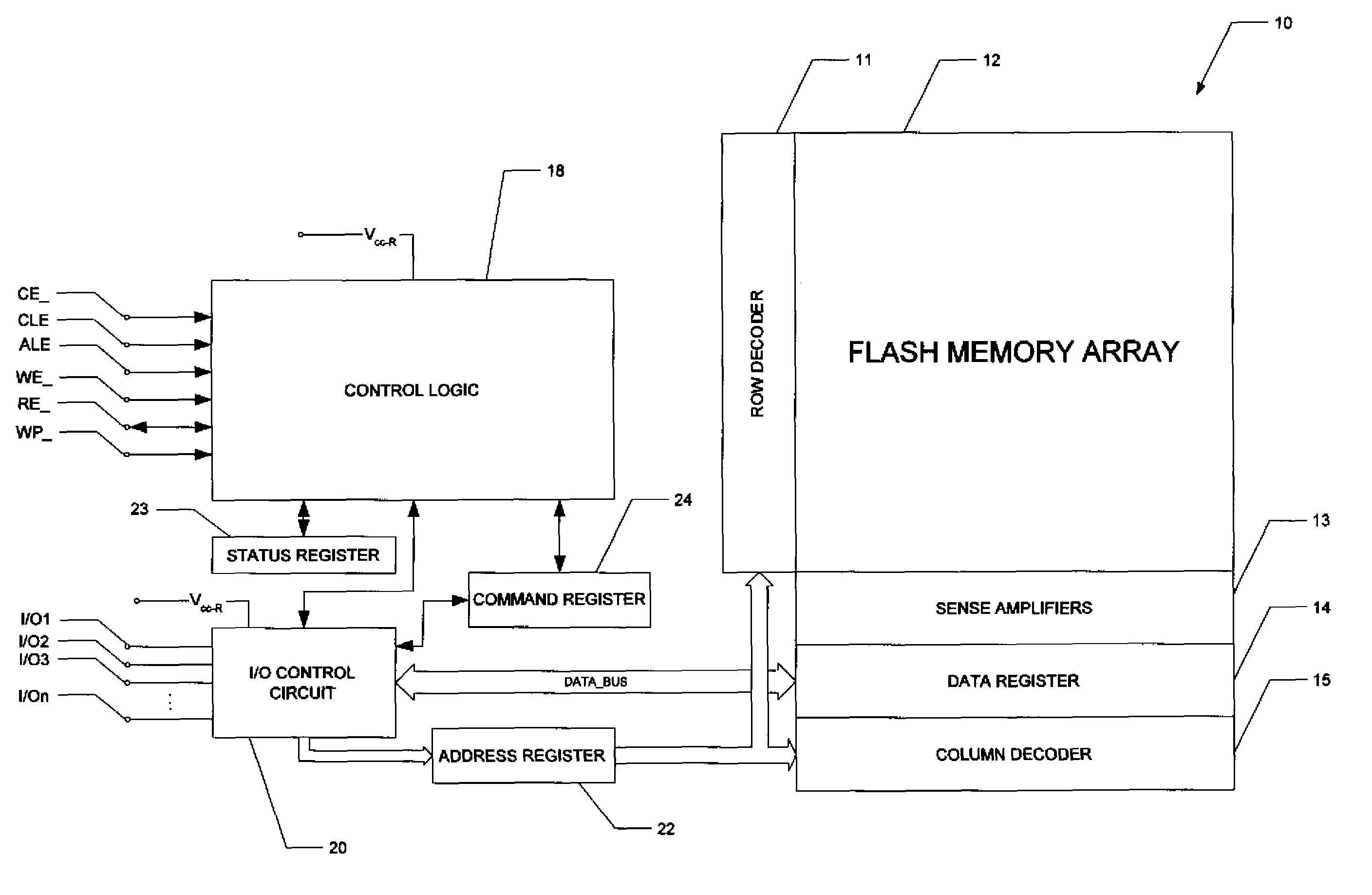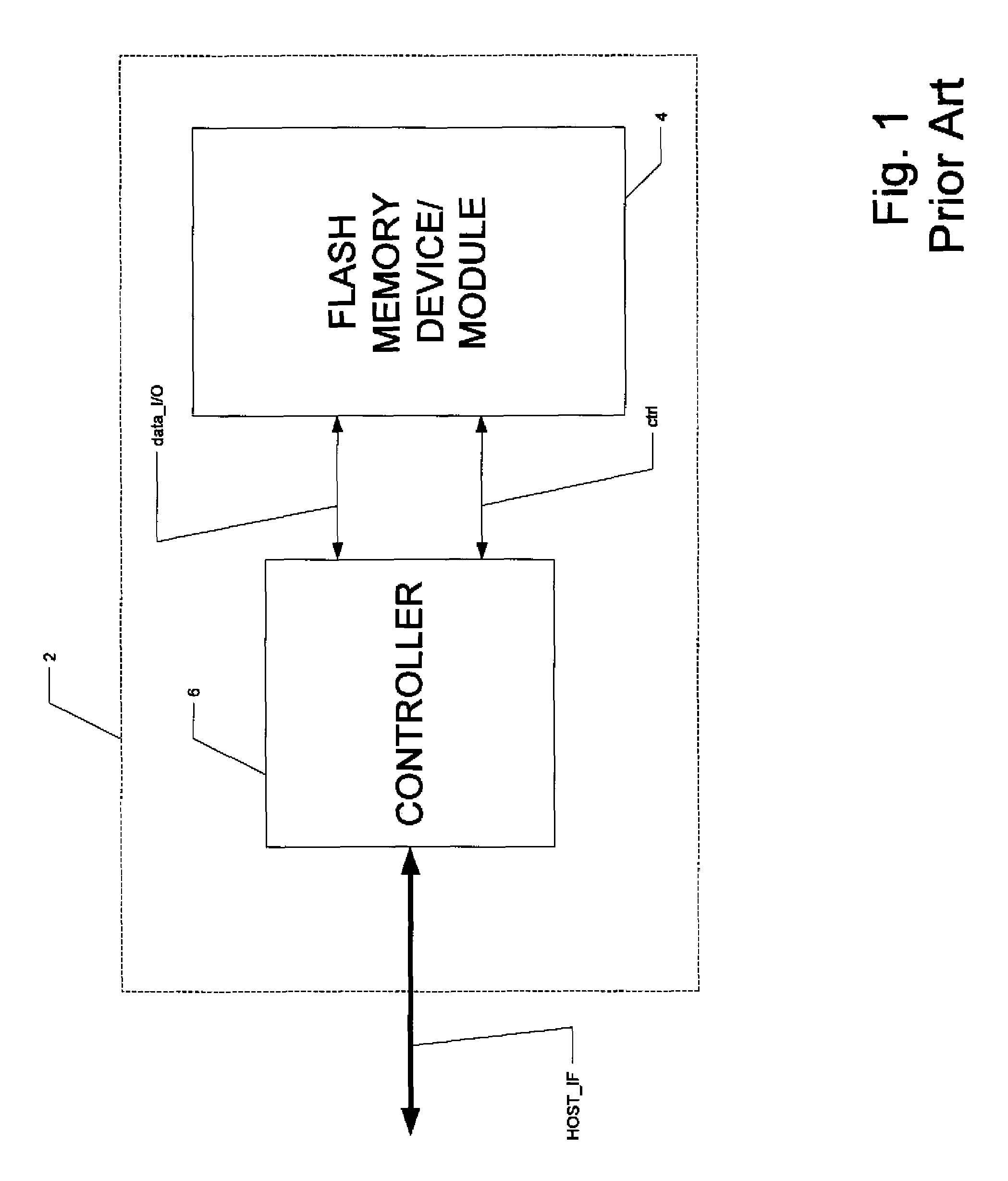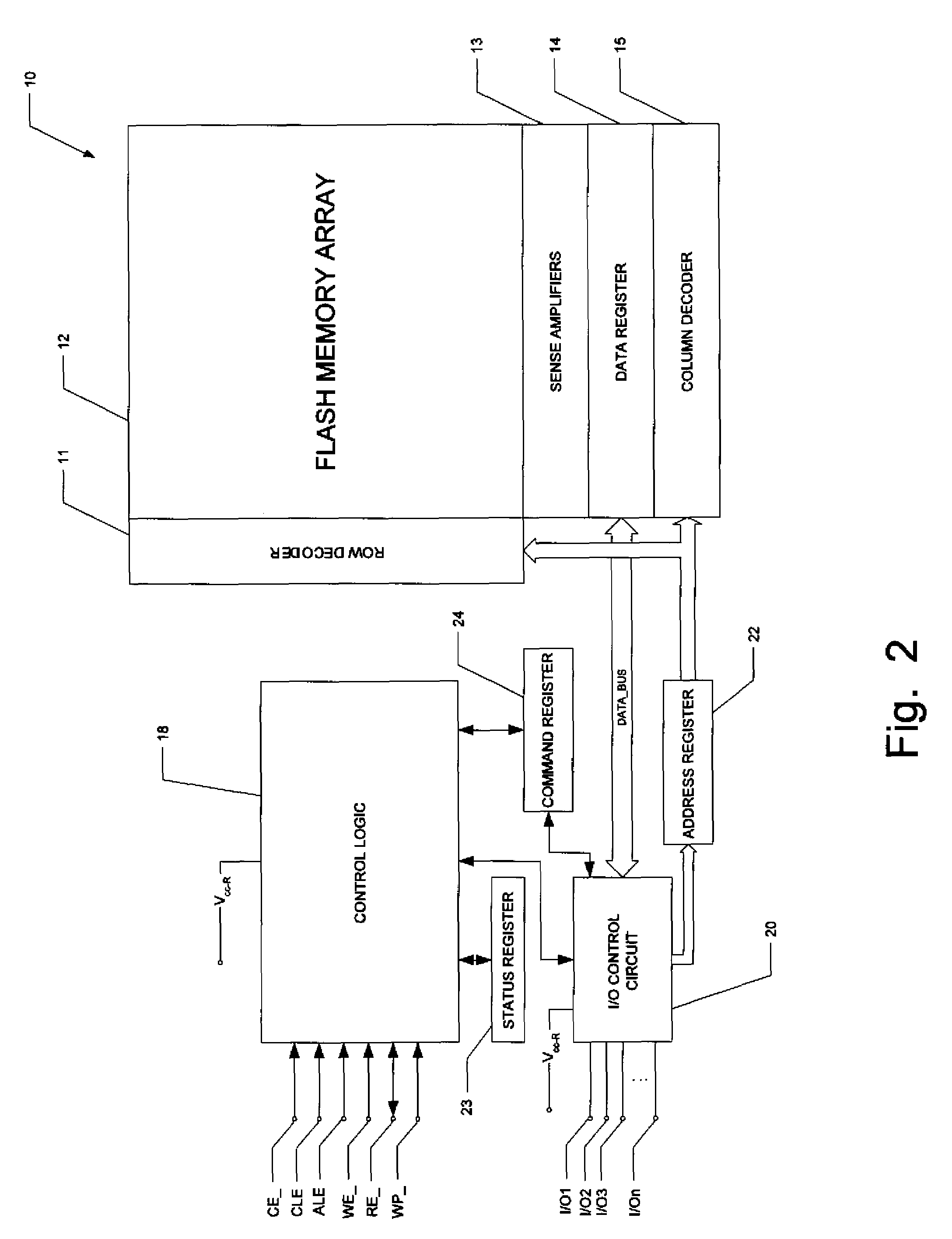Method of high-performance flash memory data transfer
a high-performance, flash memory technology, applied in static storage, digital storage, instruments, etc., can solve the problems of insufficient data transfer time, insufficient data rate to achieve desired delay time, and insufficient data rate to achieve the desired delay time. , to achieve the effect of reducing power consumption and reducing voltage swing
- Summary
- Abstract
- Description
- Claims
- Application Information
AI Technical Summary
Benefits of technology
Problems solved by technology
Method used
Image
Examples
Embodiment Construction
[0027]The present invention will be described in connection with its preferred embodiment, namely as implemented into a flash memory module, and a subsystem including such a flash memory module, and method of operating the same. More specifically, this exemplary flash memory module is described as a multi-level cell (MLC) flash memory of the NAND type, as it is contemplated that this invention will be particularly useful in connection with such flash memories, in order to enable the use of solid-state non-volatile memory for mass data storage in computer systems. However, it is contemplated that this invention will be useful and beneficial in other applications involving non-volatile solid-state memories of various types. Accordingly, it is to be understood that the following description is provided by way of example only, and is not intended to limit the true scope of this invention as claimed.
[0028]FIG. 2 illustrates an exemplary construction of flash memory device (or module) 10 ...
PUM
 Login to View More
Login to View More Abstract
Description
Claims
Application Information
 Login to View More
Login to View More - R&D
- Intellectual Property
- Life Sciences
- Materials
- Tech Scout
- Unparalleled Data Quality
- Higher Quality Content
- 60% Fewer Hallucinations
Browse by: Latest US Patents, China's latest patents, Technical Efficacy Thesaurus, Application Domain, Technology Topic, Popular Technical Reports.
© 2025 PatSnap. All rights reserved.Legal|Privacy policy|Modern Slavery Act Transparency Statement|Sitemap|About US| Contact US: help@patsnap.com



